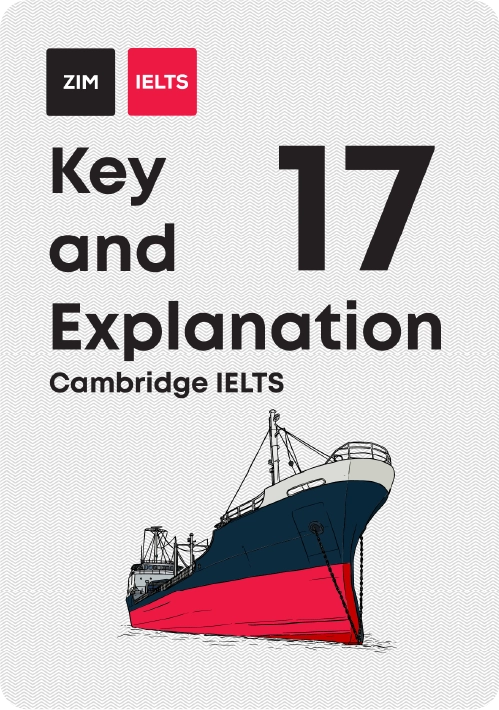Giải đề Cambridge IELTS 17, Test 3, Writing Task 2
Phân tích đề bài
Chủ đề: where to work
Dạng bài: Discussion
Hướng dẫn tiếp cận: Đối với dạng bài này, người viết bàn luận cả 2 quan điểm và đưa ra quan điểm cá nhân về vấn đề.
Dàn bài
Mở bài |
|
Thân bài 1 | Bàn luận quan điểm: người lao động phải làm việc tại quốc gia đã đào tạo họ
|
Thân bài 2 | Bàn luận quan điểm: người lao động nên được tự do lựa chọn quốc gia làm việc
|
Kết bài | Tóm tắt các ý trong bài và nêu lại quan điểm cá nhân |
Bài mẫu
The idea that certain professionals should be obliged to work in their country of education has attracted lots of attention recently. While some people think it is essential for these workers to stay in the country that educates them, I believe that choice should not be limited to just one nation.
Some people believe that students should be obliged to repay the efforts of the country that has educated them by having them work in that country to build their career. The education system of a nation is usually partly funded by the government, which essentially means that the government is investing in all students attending those schools. In other words, as most educational institutions and universities are government funded, or at least partly funded, professionals indirectly receive government support during their education. Therefore, after becoming well-equipped with the necessary skills and knowledge to begin their careers, these students are then expected to use their expertise to help develop the country in which they were educated, in order to give back to the nation.
However, I think that forcing people to stay in a particular country goes against the values of a free and fair society. People should have the freedom to select what is most suitable for themselves, including where they want to live and work. Failing to achieve this might lead to resentment among workers, who may feel they are being taken advantage of. This may result in low work motivation, negatively affecting their work performance and productivity. In contrast, if professionals can freely select their workplace, they may be keener on devoting themselves to their work, which may boost their job satisfaction, resulting in better work outcomes.
In conclusion, it is true that highly skilled workers should shoulder the responsibility of developing the country that supports their study. However, I think requiring them to stay in one particular country is counterproductive as they may resent working there. Thus, the choice should be up to each individual so that they can comfortably contribute to society.
Từ vựng cần lưu ý
be obliged to do something: bị bắt làm gì
repay the efforts: trả lại những nỗ lực/cố gắng
government funded: được tài trợ bởi chính phủ
go against: đi ngược lại
a free and fair society: một xã hội tự do và công bằng
take advantage of: tận dụng, lợi dụng
counterproductive: phản tác dụng
resent: cảm thấy phẫn nộ
Trên đây là bài mẫu gợi ý cho đề Cambridge IELTS 17, Test 3, Writing Task 2 được đội ngũ chuyên môn tại Anh Ngữ ZIM biên soạn. Thí sinh có thể thảo luận về đề thi và đáp án dưới phần bình luận hoặc tham gia diễn đàn ZIM Helper để được giải đáp kiến thức tiếng Anh luyện thi IELTS và các kì thi tiếng Anh khác, được vận hành bởi các High Achievers.

Sở hữu sách “Cambridge English IELTS 17 Key & Explanation” để xem toàn bộ nội dung giải thích đáp án. Đặt mua tại đây.
- Cambridge English IELTS 17 - Key and Explanation
- Giải đề Cambridge IELTS 17, Test 4, Speaking Part 1: Map
- Giải đề Cambridge IELTS 17, Test 4, Speaking Part 2 & 3
- Giải đề Cambridge IELTS 17, Test 2, Listening Part 4: The impact of digital technology on the Icelandic language
- Giải Cam 17, Test 3, Listening Part 3: Holly’s Work Placement Tutorial
- Giải đề Cambridge IELTS 17, Test 3, Listening Part 2: Childcare service
- Giải đề Cambridge IELTS 17, Test 4, Writing Task 2
- Giải đề Cambridge IELTS 17, Test 4, Listening Part 4: Maple syrup
- Giải đề Cambridge IELTS 17, Test 3, Speaking Part 1
- Giải đề Cambridge IELTS 17, Test 3, Reading Passage 1: The thylacine
- Giải đề Cambridge IELTS 17, Test 4, Listening Part 1: Sporting activities at school

Bình luận - Hỏi đáp